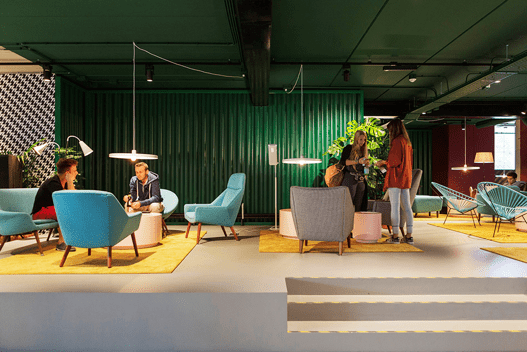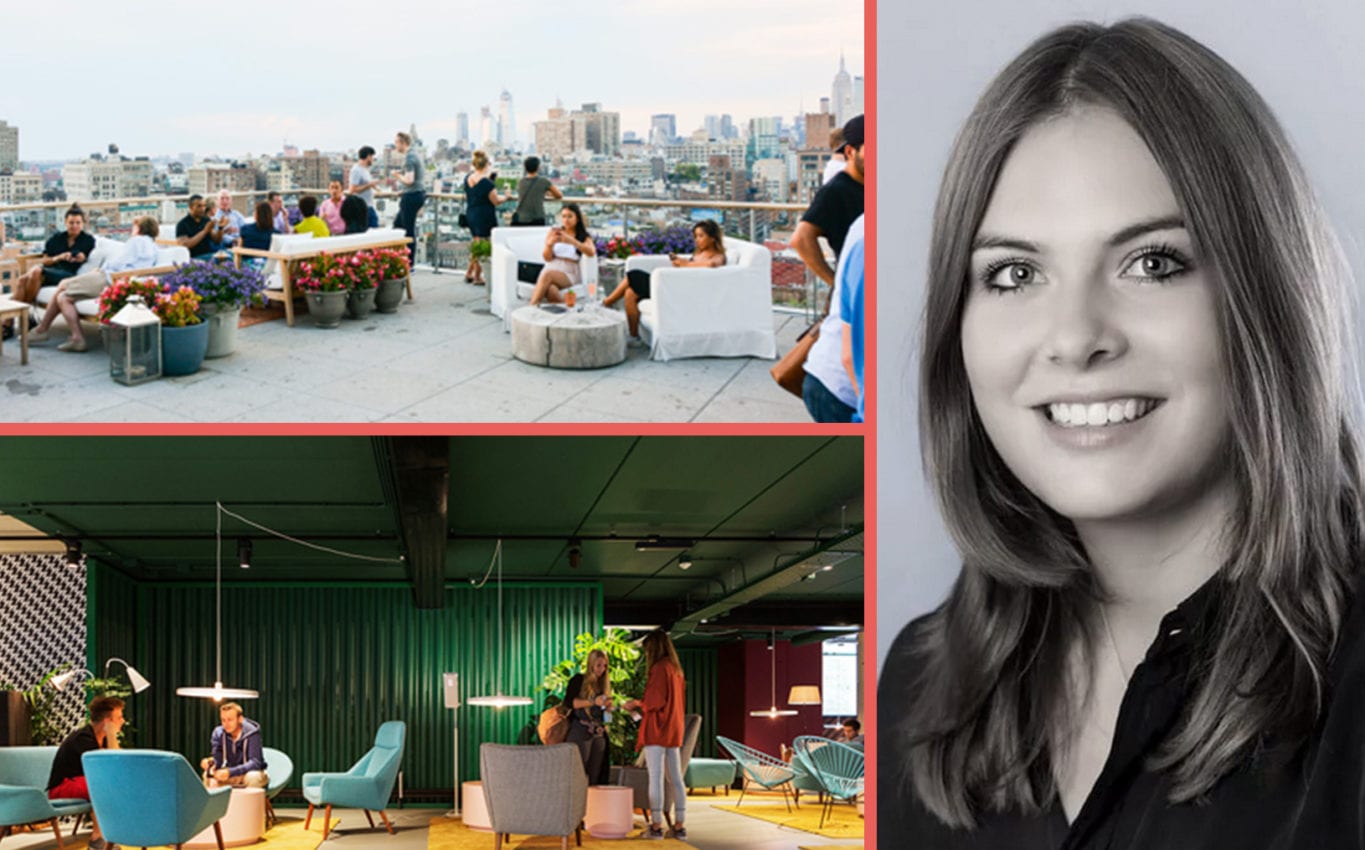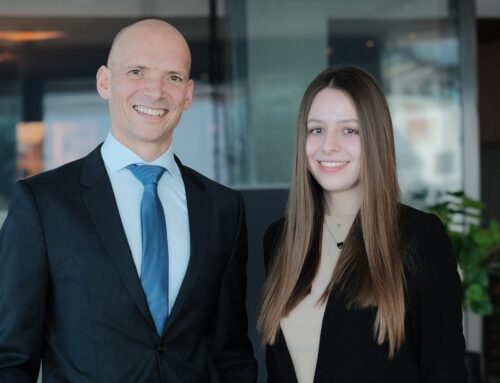
Co-living brand quarters in Chicago
Where is the co-living trend going? Who is going to dominate the space, with what concepts and why? HoCoSo began asking all these questions several years ago as we saw the increased blurring of boundaries between hospitality, extended stay concepts and residential accommodation.
The co-living phenomenon has moved beyond one-off concepts created by entrepreneurs. It has gone global, attracting funding from global real estate investors such as Tishman Speyer and brand tie-ups, including car brand MINI.
What is all the fuss about? The idea behind co-living is that tenants each have private rooms in a building, with access to communal areas, in that same building. In addition to their private rooms, residents have access to communal activities and amenities, typically managed by a third-party operator. Owners/operators favour an all-inclusive model, rather than room-only rentals. Moreover, private rooms are typically smaller in size than established residential standards, to keep prices lower for the tenant, whilst maximising the number of rooms (and price per square foot) in the overall scheme
So why has co-living gained such traction already? HoCoSo identified a complex range of factors across technology, urbanisation, the sharing economy, changing demographics/lifestyles and new business models. These trends combined have spurred the exponential growth of the co-living movement. Critically, it also has potential to alleviate the housing crisis in many markets and as such it is regarded in many cases as a ‘win-win situation’ by enabling ‘affordable’ housing for tenants and increased revenues for the developer.
The first generation of co-living products were developed on the back of these trends. The success of these concepts is driving a next wave of investment into new formats, to appeal to a broader group of consumers, such as Ollie (singles and couples from Millennials to baby boomers), Kin (for young families) and a more cost-conscious customer (micro-apartments/extended stay concepts such as StayKooooK). Operators are also crossing borders to build international portfolios (including The Collective, Medici Living).
When looking at these expansion plans and investments, it becomes clear that co-living is not a fad. It has been touted as the next biggest investment in the real-estate industry by some observers. Moreover, the hospitality industry is starting to incorporate co-living elements into their concepts to create a sense of community within their public areas.

The Student Hotel
There seems to be a growing acceptance among people of sharing spaces with others. Airbnb has something good to answer for here, we think.
New players across the hospitality and co-living spectrum are also realising the lucrative potential of combining apartment-style amenities with hotel-standard services. HoCoSo expects to see co-living continue to become more formalized and a workable solution for temporarily or long-term vacant buildings.
Co-living is being seen as game changer because of the change in consumer trends. Traditional hospitality products have historically focused on standardised product and services aimed at proving an overnight stay. Today, there is a growing consumer aspiration for gathering experiences and belonging to communities.

The Public Hotel in New York
As the co-living sector matures, the creative vision of investors, operators, designers and advisors will need to be thoughtful, rigorous and bold, whilst anchored in financial reality. Robust consumer and financial data in this segment is limited – hence the reason HoCoSo has been actively developing expertise in this segment. We shall bring our insights to the IHM RECHARGE conference this year in Barcelona, where Jonathan Humphries will hold a development workshop to facilitate the creation of a totally unique co-living experience. This journey is just beginning!

About Nicola Minderjahn
Nicola, born in the US, lived most of her life in Germany and the Netherlands. Based on her deep passion for the service industry, she started her studies of International Hospitality Management at “Hotelschool The Hague” in Amsterdam, The Netherlands. Nicola already collected first experience at the Grand Hotel Central, Barcelona, a member of Small Luxury Hotels of The World . Due to her interest both in numbers and market research, she joined HoCoSo towards the end of 2018 as Hotel Analyst intern, and now holds the position of Hotel Analyst in our team.

About Katharine Le Quesne – Co-author
Katharine Le Quesne has spent two decades as a professional advisor to the travel, hospitality and leisure industries. She works all over the world in emerging and mature markets, helping clients to assess opportunities for value creation. She loves what she does and has a particular specialism in: development strategy; destination resorts; luxury and lifestyle brands; and theme parks. Ms. Le Quesne began her career with Jones Lang LaSalle in China, during China’s first real estate boom. She subsequently worked for global professional services firms Arthur Andersen and Deloitte in Europe and Asia, prior to joining HoCoSo. She is a regular speaker at industry events, a writer on industry issues and has been a professional advisor on the World Economic Forum Travel & Tourism Competitiveness Report. She is also a Visiting Lecturer at a number of world-class hotel schools. Ms. Le Quesne speaks English, Mandarin Chinese and French.
About HoCoSo
HoCoSo are advisors with a difference. We create tailor-made and innovative solutions for clients’ hospitality-led projects by bringing together the optimum team of sector specialists. Jonathan Humphries, Chairman and Owner of HoCoSo, and his direct team specialize in the extended-stay, co-living, and hotel-alternatives hospitality market; luxury, lifestyle and boutique hotels; and resort developments in Europe, the Middle East and Africa (EMEA). Our strengths lie in the following core services:
- Product & Concept Creation, for portfolio & individual asset developments.
- Strategic Development Projects with a focus on new-market / new-concept business expansion planning, operator selection, market and financial feasibility studies.
- Transformative Asset Management for brand re-positioning, asset re-evaluation and concept re-structuring.
- Hospitality Education for companies and academic institutions, with a focus on bespoke course development, training and teaching.
- Workshops, Keynotes and Conference Moderating for boards, leading international conferences and incubators.








Leave A Comment